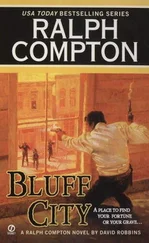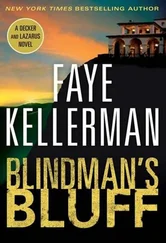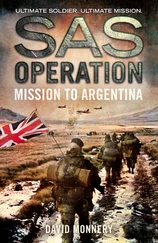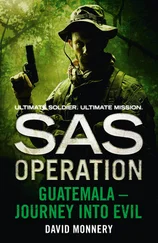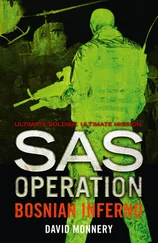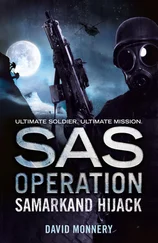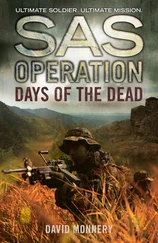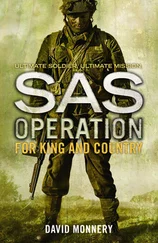DAVID MONNERY
Published by HarperCollins Publishers Ltd
1 London Bridge Street
London SE1 9GF
www.harpercollins.co.uk
First published in Great Britain by 22 Books/Bloomsbury Publishing plc 1994
Copyright © Bloomsbury Publishing plc 1994
Cover layout design © HarperCollins Publishers 2016
Cover Photographs © MILpictures, Tom Weber/Getty Images (main image); Shutterstock.com (textures)]
David Monnery asserts the moral right to be identified as the author of this work.
A catalogue copy of this book is available from the British Library.
Though many of the events depicted in this novel actually took place in The Gambia in the summer of 1981, it should be considered entirely a work of fiction. The names, characters and incidents portrayed in it are the work of the author’s imagination. Any resemblance to actual persons, living or dead, events or localities is entirely coincidental.
All rights reserved under International and Pan-American Copyright Conventions. By payment of the required fees, you have been granted the non-exclusive, non-transferable right to access and read the text of this e-book on screen. No part of this text may be reproduced, transmitted, down-loaded, decompiled, reverse engineered, or stored in or introduced into any information storage and retrieval system, in any form or by any means, whether electronic or mechanical, now known or hereinafter invented, without the express written permission of HarperCollins.
Source ISBN: 9780008155186
Ebook Edition © December 2015 ISBN: 9780008155193
Version: 2015-11-02
Contents
Cover
Title Page
Copyright Published by HarperCollins Publishers Ltd 1 London Bridge Street London SE1 9GF www.harpercollins.co.uk First published in Great Britain by 22 Books/Bloomsbury Publishing plc 1994 Copyright © Bloomsbury Publishing plc 1994 Cover layout design © HarperCollins Publishers 2016 Cover Photographs © MILpictures, Tom Weber/Getty Images (main image); Shutterstock.com (textures)] David Monnery asserts the moral right to be identified as the author of this work. A catalogue copy of this book is available from the British Library. Though many of the events depicted in this novel actually took place in The Gambia in the summer of 1981, it should be considered entirely a work of fiction. The names, characters and incidents portrayed in it are the work of the author’s imagination. Any resemblance to actual persons, living or dead, events or localities is entirely coincidental. All rights reserved under International and Pan-American Copyright Conventions. By payment of the required fees, you have been granted the non-exclusive, non-transferable right to access and read the text of this e-book on screen. No part of this text may be reproduced, transmitted, down-loaded, decompiled, reverse engineered, or stored in or introduced into any information storage and retrieval system, in any form or by any means, whether electronic or mechanical, now known or hereinafter invented, without the express written permission of HarperCollins. Source ISBN: 9780008155186 Ebook Edition © December 2015 ISBN: 9780008155193 Version: 2015-11-02
Chapter 1
Chapter 2
Chapter 3
Chapter 4
Chapter 5
Chapter 6
Chapter 7
Chapter 8
Chapter 9
Chapter 10
Chapter 11
Chapter 12
Chapter 13
Chapter 14
Epilogue
OTHER TITLES IN THE SAS OPERATION SERIES
About the Publisher
‘This town is ’coming like a ghost town…’
The song seemed to float ominously out of every open door and window as Worrell Franklin walked slowly down Acre Lane.
‘Do you remember the good old days before the ghost town?’
No, not really, he thought, although only a fool would deny that things were getting worse.
A Rasta walked past him, going up the hill, and the look he flashed Franklin was for his uniform, not his face. Or, to be precise, the combination of the two. The oppressor’s uniform, the face of the oppressed. A black soldier in a white man’s army.
Franklin was used to looks like that, and to the more subtle ones that blended hostility with respect, contempt with envy. He was someone who had got out, escaped. He was someone with a job, which these days felt more and more like a privilege in itself.
Normally he did not wear his uniform around Brixton – it was just easier not to – but this morning he had it on for a reason. The only reason around here. For impressing Whitey.
He turned left onto the High Road and walked north. A crowd of youths were outside the tube station, doing nothing, just waiting for something to ignite their interest. On his side of the road a crowd were gathered round a TV shop, watching the Royal Wedding on the dozen or so sets in the window. When Franklin had left his mum in their living room Lady Diana had been setting out from Clarence House in the ceremonial Glass Coach, looking like an upmarket Cinderella. Now she was walking up the steps of St Paul’s, trailing an ivory-coloured dress which looked long enough to play cricket on.
The camera followed her into the cathedral, dwelling on a few famous faces in passing: Mrs T in a blue pillbox hat, Nancy Reagan in a nauseating pink, the Queen in aquamarine, looking like she usually did, as if she was trying hard not to notice that someone had farted nearby.
And then there was the King of Tonga, whose specially reinforced chair had been featured on the news that morning. It would hardly do to have the great fat git crashing through his pew in the middle of the ceremony.
Franklin tore himself away from the glorious nuptials and walked on under the railway bridges. The police station was another two hundred yards down on the right, across from the junction with Stockwell Road. Even from a distance it looked like a fortress, with its windows protected by wire mesh, and the building itself by iron railings.
He wove his way through the stopped traffic at the lights and walked in through the front door. The desk sergeant’s face went through that series of expressions which Franklin could have painted from memory. First there was the instinctive mixture of contempt and hostility accorded any black face, second the unpleasant element of surprise which went with putting that face above the authority of a uniform. Then the observer’s brain engaged, realized that it was a British Army uniform, and spread relief back through the limbs. Finally the question of a reason for his presence intruded, creating a wariness which was usually expressed through mock aggression.
It all took about five seconds.
‘What can we do for you, John?’ the sergeant asked. Behind him, from somewhere deep within the recesses of the station, the sounds of the Royal Wedding could be heard. Another two policemen were watching the exchange, both of them white. Where are the black policemen? Franklin wondered. Probably ‘out in the community’, trying to explain themselves.
This was why he had joined up, to get away from all this.
‘My name is Worrell Franklin,’ he said formally. ‘I believe my brother Everton Franklin is in custody here.’
The desk sergeant’s face went through another sequence, culminating in brisk correctness. He opened one of the ledgers in front of him and ran his finger down a list. ‘That is correct, sir,’ he said. ‘He was remanded by the magistrates this morning.’
‘I’d like to talk to someone about the circumstances of the arrest, and to see my brother if that’s possible.’
‘I don’t know…’
‘I only have a twenty-four-hour leave,’ Franklin lied, ‘so I would appreciate it if something could be arranged.’ He wondered if anyone had recognized the winged-dagger badge, or whether he would have to spell out his membership of the SAS.
Читать дальше

